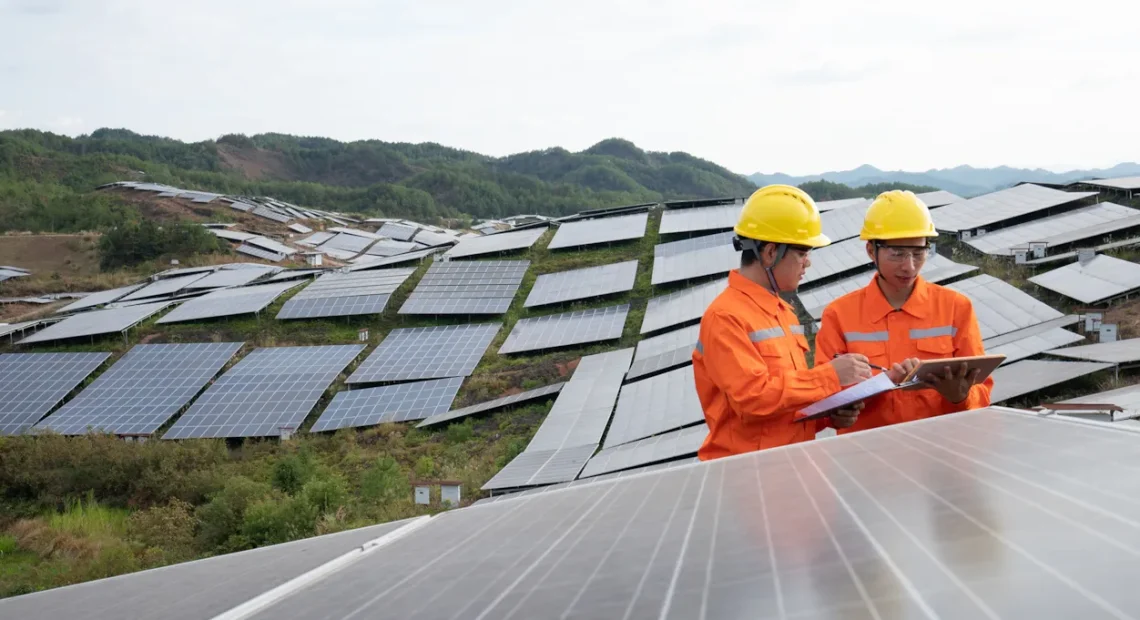DNV: 50% of energy firms are set to integrate AI by 2025

As digitalisation speeds up
A new survey from DNV, an independent energy expert and assurance provider, reveals that 50% of senior energy professionals plan to integrate Artificial Intelligence (AI) into their operations by 2025.
This finding comes from DNV’s latest report, ‘Leading a Data-Driven Transition,’ which is part of its 14th annual survey. The survey sampled 1,300 senior industry figures and included comprehensive interviews with leaders and experts.
The survey underscores the growing importance of digitalisation in revolutionising the energy sector, impacting everything from generation and transmission to distribution and consumption. AI-driven technologies—such as smart grids, predictive maintenance, and real-time data analytics—are set to play a critical role in this transformation.
However, DNV emphasises that success in this digital shift requires innovation, a strategic vision, and leadership, positioning it as crucial as efforts to decarbonise the industry.
Clear divide
The survey highlights a clear divide between ‘Digital leaders’ and ‘Digital laggards’ within the industry. Digital leaders, comprising 28% of respondents, are optimistic about achieving revenue, profit, and decarbonisation goals and are significantly ahead in using digital technologies. In contrast, 37% of organisations identify as Digital laggards, lagging in adopting digital tools and technologies.
Digital leaders are notably more advanced in utilising data-driven applications, with 68% having access to quality data and 80% benefiting from digital technologies, compared to just 21% and 33% of laggards, respectively.
Emerging technologies such as AI and digital twins are also more prevalent among leaders, with around one-third reporting advanced use, compared to single-digit percentages among laggards.
Almost half of the surveyed professionals expect to integrate AI-driven applications into their operations by 2025, with Digital leaders leading the charge. These leaders’ most impactful data-driven applications include process optimisation, system integration, and operational automation. Despite the advantages, the survey also notes challenges, particularly in system integration and the effective use of data.
Legacy systems
Paula Doyle, Chief Digital Officer at Aker BP, highlights the issues faced with legacy systems and the need for improved data accessibility. “Typically, companies have a lot of legacy systems where data is locked into the application,” she explains.
“It’s necessary to liberate and contextualise data from industrial systems to make it accessible to humans and machines for better and faster decisions.”
The report projects that by 2050, AI could significantly reduce clean energy generation costs by $1.3 trillion and lower grid equipment costs by $188 billion. Overall, AI is expected to cut power system costs by 6% to 13%, cementing its role as a vital component in the future energy landscape.
Despite the progress, the survey reveals that resistance to change remains a significant obstacle. Balancing safety and agility in an industry where failure is costly adds to the complexity. Digital leaders are distinguished by their commitment to centralising digitalisation to their strategy, with 90% placing digitalisation at the core of their operations, compared to just 39% of laggards.
Lucy Craig, Director of Growth, Innovation, and Digitalisation, Energy Systems at DNV, said: “As the energy sector navigates the twin challenges of digitalisation and decarbonisation, the ability to adapt and innovate will define success.
“DNV’s survey highlights the obstacles and opportunities in harnessing digital technologies. Digital Leaders are setting themselves apart by embedding digitalisation into their strategy, fostering innovation, and investing in critical technologies. Over the next year, these organisations are well-positioned to enhance their progress and maintain their competitive edge through further digitalisation and cyber-resilience.”
As the energy industry moves forward, integrating AI and other digital technologies will become a defining factor in shaping its future.
Gastech, the world’s largest energy event, will be hosted by dmg events in Houston, Texas, from September 17 to 20, 2024.
Featured image: The DNV report projects that by 2050, AI could significantly reduce clean energy generation costs by $1.3 trillion. Credit: DNV













